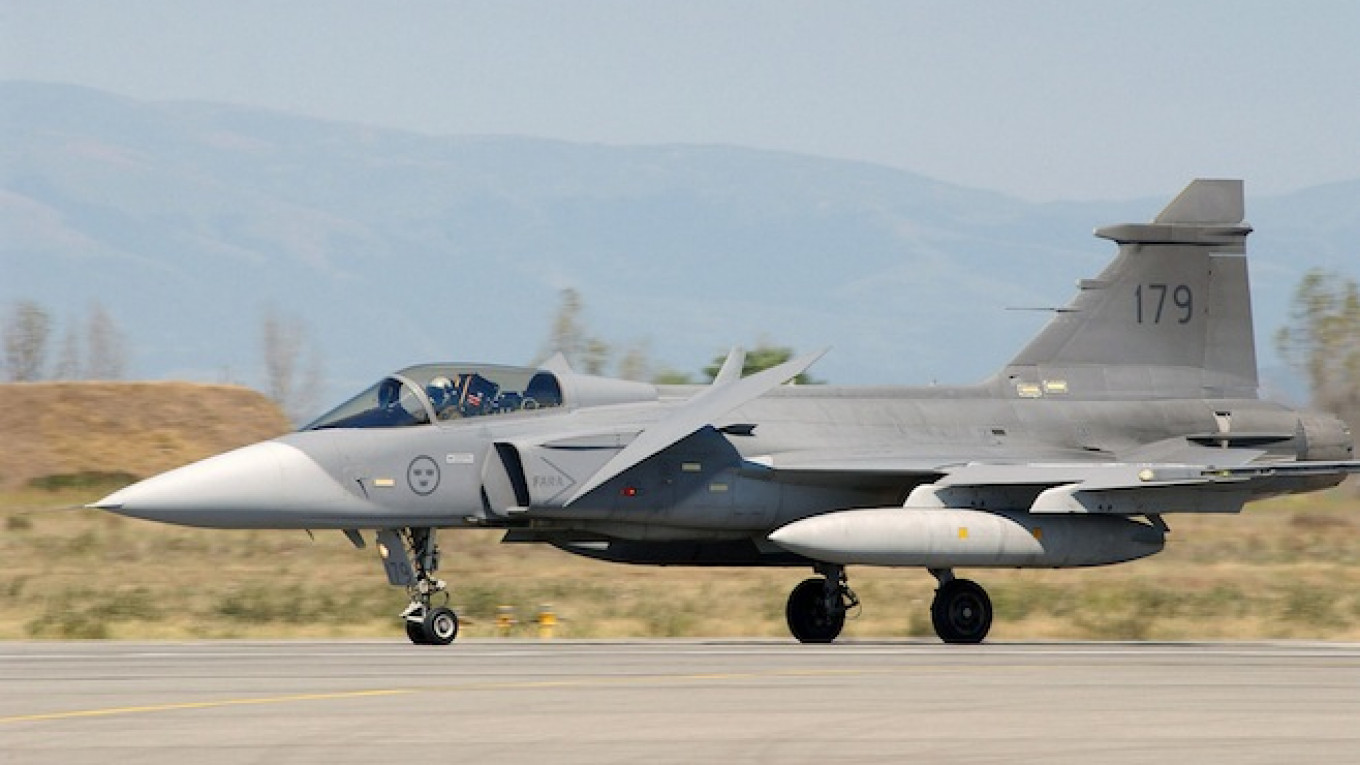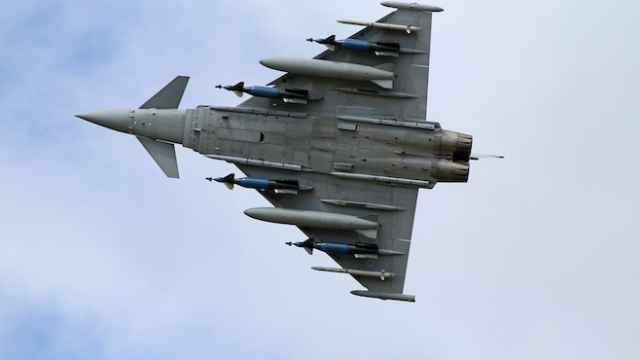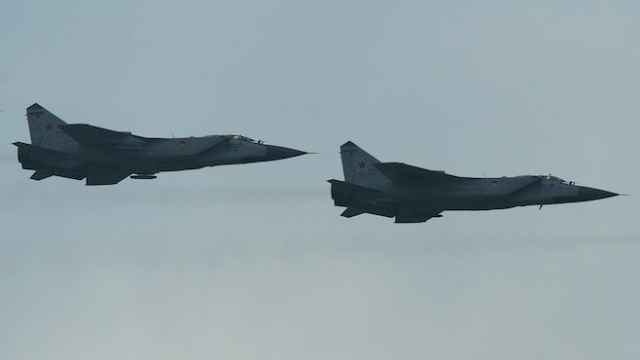Swedish defense company Saab has said there is growing interest for its Gripen fighter jet from countries spread across Russia's European flank, amid rising tensions over Ukraine.
The Czech Republic and Hungary already operate 14 Gripens each under leases, and a senior Saab executive said Monday that he was open to more such deals as others with limited budgets seek more modern air power.
"Even if they don't expect a Russian intervention, there are more tensions and air policing becomes necessary, so if you only have a few MiG-21s you would like to have a more robust system," deputy chief executive Lennart Sindahl said in an interview.
Leasing generates significant support deals, he said.
Saab is upbeat about exports after scoring a breakthrough in Brazil where it is finalizing a $5.4 billion order for 36 next-generation Gripen E/Fs. But it says upgrades of the existing versions will be an increasing part of its business.
It announced a new Mark 4 version for the in-house radar for the current version of Gripen, which it hopes Sweden will adopt.
Saab officials told reporters at a briefing earlier that the Czech Republic might be interested in more jets, while Croatia could decide next year on renewing its MiG-21 fleet.
They said Slovakia had selected the Gripen and could take 8-12 jets. "We are hoping for a contract later this year," said Gripen program chief Jerker Ahlqvist.
Bulgaria may enter the fray by replacing elderly MiG-29s, though it is also expected to consider used Lockheed Martin F-16s.
Finland is meanwhile expected to make the first steps next year toward a 2018 competition that could lead to an order for 40-60 planes early next decade.
Saab said it would offer its enhanced Gripen E but analysts say it will face fierce competition from top-line U.S. and European jets.
In total, Saab expects exports of 300-450 Gripens over 20 years.
A Message from The Moscow Times:
Dear readers,
We are facing unprecedented challenges. Russia's Prosecutor General's Office has designated The Moscow Times as an "undesirable" organization, criminalizing our work and putting our staff at risk of prosecution. This follows our earlier unjust labeling as a "foreign agent."
These actions are direct attempts to silence independent journalism in Russia. The authorities claim our work "discredits the decisions of the Russian leadership." We see things differently: we strive to provide accurate, unbiased reporting on Russia.
We, the journalists of The Moscow Times, refuse to be silenced. But to continue our work, we need your help.
Your support, no matter how small, makes a world of difference. If you can, please support us monthly starting from just $2. It's quick to set up, and every contribution makes a significant impact.
By supporting The Moscow Times, you're defending open, independent journalism in the face of repression. Thank you for standing with us.
Remind me later.






